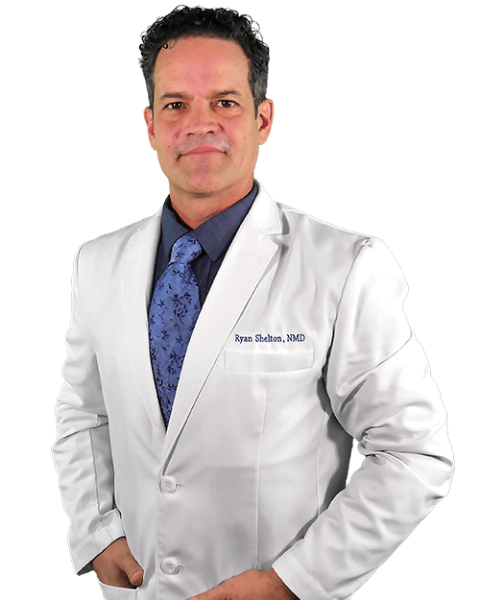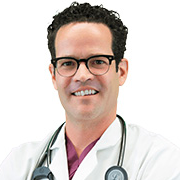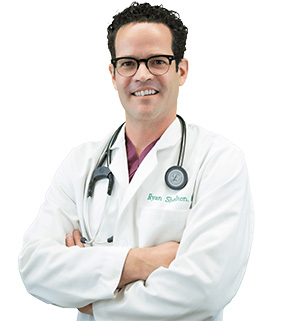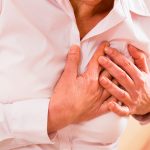If you’re on a low carb ketogenic diet for weight loss, or if you plan on going on this diet or know of anyone who plans on going on this diet, you should know that there are hazards associated with being on a ketogenic diet, especially long-term. One of the most common problems to arise from being on a low carb ketogenic diet is nutrient deficiencies. These deficiencies can have chronic impacts on your health and body.
Low Carb Diets and the Ketogenic Diet
There are three versions of a low carb diet:
- Eating less than 50g of total carbohydrates a day. This is also classified as a “ketogenic diet”. Apart from nutrient deficiencies, adopters of this diet may also experience “keto flu”, especially during the first two to three weeks of the dietary transition. Keto flu symptoms include low energy, fatigue, malaise, sore muscles, and trouble sleeping.
- Eating less than 150g of total carbohydrates a day. Your liver stores carbohydrates in the form of glycogen. When you’re eating a low carb diet, your liver can generate some glucose or carbohydrates, and 150 grams is about what the liver can produce for you. You may feel kind of crummy, find yourself craving more carbs, or even experience keto flu even if you’re not in ketogenesis or producing ketone bodies. If you’re eating less than 150 grams of carbs a day, try eating more protein calories to balance it out.
- Eating less than 250g of total carbohydrates a day. The average American eats a little over 300 grams of carbs, so if you’re eating less than 250 carbs, that’s also considered a low carb diet, although it’s not considered a ketogenetic diet.
Nutrient Deficiencies on a Ketogenic Diet
A large study done back in 2010 showed that out of the 27 essential micronutrients (vitamins and minerals that are typically included in a well-balanced whole food diet), six micronutrients plus four minerals can become deficient on a ketogenic diet. In the study, they were all identified as being consistently low, and they have a high likelihood of continuing to be low the longer that you’re on a ketogenic diet.
The four minerals that tend to be deficient on a ketogenic diet are:
- Sodium: If you’re on a ketogenic diet, make sure that you’re getting enough sodium. It’s important for so many processes in the body. Whilst an excess of sodium may be harmful, there is still a minimal amount that you should intake. Target about 1,000 to 1,500 milligrams of sodium intake a day. You can easily achieve this through seasoning foods with pink Himalayan or Celtic salt, using broth or bullion, or eating shellfish.
- Potassium: Potassium-rich foods include spinach, chicken breast, salmon, beef, avocado, broccoli, asparagus, and mushrooms. Eat these foods while you’re on a ketogenic diet.
- Magnesium: Magnesium is important for over 350 enzymatic or enzyme processes in the body. It can become deficient when you’re on a ketogenic diet. Magnesium-rich foods include spinach, dark leafy green vegetables like Swiss chard and kale, pumpkin seeds, oysters, yogurt, and avocado.
- Zinc: Zinc is high in red meat, shellfish, beans and legumes, nuts and seeds, and eggs. It is one of the four important minerals for you to pay attention to if you’re on a ketogenic diet.
There are also six micronutrients that can become deficient when following a ketogenic diet:
- Vitamin B7: Also known as biotin, vitamin B7 can be found in meats, eggs, nuts and seeds, salmon, dairy, avocados, sweet potatoes, cauliflower, mushrooms, and dark leafy green vegetables.
- Vitamin D: Vitamin D has had a tremendous amount of research of late because of its negative associations with chronic health disease, chronic cardiovascular disease, and cancer. Vitamin D is a unique vitamin that most people don’t get enough of. In fact, it’s estimated that more than 40% of American adults have a vitamin D deficiency. This vitamin is made from cholesterol in your skin when it’s exposed to the sun. That’s why getting enough sunlight is very important for maintaining optimal vitamin D levels. At noon, the sun is at its highest point and the UVB rays are most intense. That means you need less time in the sun to make sufficient amounts of vitamin D. Many studies also show that the body is most efficient at making vitamin D around noontime. For example, in the UK, 13 minutes of midday sunlight exposure during summer three times per week is enough to maintain healthy levels among Caucasian adults. Another study found that 30 minutes of midday summer sun exposure in Norway was equivalent to consuming about 10,000 to 20,000 international units of Vitamin D.
The commonly recommended dose of Vitamin D is about 600 IUs if you take it as a supplement, but natural sunlight is always best. Not only is getting vitamin D around midday more efficient and more effective, but it might also be safer than getting some later in the day. One study found that afternoon sun exposure may actually increase your risk for dangerous skin cancers. Some scientists recommend exposing only around a third of your body area to the sun.
According to this recommendation, wearing a tank top and shorts for 10 – 30 minutes a day, three days per week, should give you adequate amounts of vitamin D. Just make sure to prevent burning if you’re staying in the sun for a long time. Instead, try going with some sunscreen after you have your 10 – 30 minutes of exposure.
- Vitamin E: Another vitamin that can become deficient on a keto diet. Make sure you get enough of these vitamins in your diet. Vitamin E rich foods include nuts and seeds, vegetable oils, seafood, avocado, bell peppers, mango, and dark leafy green vegetables.
- Chromium: Chromium can also become deficient in a ketogenic diet. Chromium-rich foods include those dark, leafy green vegetables, cruciferous vegetables like broccoli, cauliflower, kale, Brussels sprouts, red meat, green beans, and eggs.
- Iodine: Iodine can become deficient in a ketogenic diet, but can be replenished by consuming seafood and iodized salt.
- Molybdenum: Molybdenum is rich in beans and legumes, peas, lentils, nuts and seeds, dark, leafy green vegetables, eggs, and tomatoes.
- Essential fatty acids: Finally, essential fatty acids can become deficient in a ketogenetic diet if you’re not choosing the right kinds of protein that are rich in omega-3, omega-7, or omega-9 fatty acids. You can find these in nuts and seeds, seafood, and avocados.
Nutrient deficiencies tend to be problematic when you’re on a ketogenic diet. You should consider supplementation if you fall into one of the following categories:
- If you’re pregnant or breastfeeding
- If you’re an adult over the age of 50
- If you don’t get enough sun
- If you’re not getting enough calories on the ketogenic diet
- If you’re not eating a wide variety of foods, including vegetables, meats, and fish
- If you’re a vegetarian
- If you have a medical condition that affects your health otherwise
This does not make the ketogenic diet a bad diet to be on, it just means you have to be aware of your intakes. If you’re on it long-term (i.e. more than four to six weeks), know that there is a real chance you may become nutrient deficient if you don’t pay attention to your specific food intakes. Consult with your physician before starting any diet.
We’ve actually created a tremendously physician-grade effective omega supplement. It’s called Omega 3-7-9 plus Krill. It contains adequate amounts of omega 3-7-9, plus krill oil. Check it out because essential fatty acids is one of the deficiencies you may experience on a keto diet.
 If you liked this video/article, do share it with your friends and loved ones. Subscribe to the Youtube channel for weekly tips on new tools and techniques to improve your health and well-being.
If you liked this video/article, do share it with your friends and loved ones. Subscribe to the Youtube channel for weekly tips on new tools and techniques to improve your health and well-being.
I believe in the original meaning of the word doctor, ‘docere’, which means teacher. I’m here to help educate you on how to take care of yourself in ways that you may not have heard of before, but that are effective. I always want to hear your ideas and feedback so be sure to leave me comments below!










